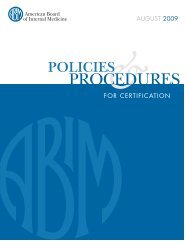The SRA Symposium - College of Medicine
The SRA Symposium - College of Medicine
The SRA Symposium - College of Medicine
You also want an ePaper? Increase the reach of your titles
YUMPU automatically turns print PDFs into web optimized ePapers that Google loves.
Papers<br />
<strong>The</strong> second is the Botswana Technology Centre (BOTEC) established in 1979. Its mandate is to<br />
promote Science and Technology through<br />
• R & D<br />
• technology transfer,<br />
• industrial support,<br />
• policy development, and<br />
• specialized informational services and systems on technology solutions for industry, business,<br />
education.<br />
BOTEC manufactures hi-technology products such as the mini hearing aid, the photovoltaic<br />
charge controller and the remote sensing equipment for weather stations. Consistent with its mandate<br />
<strong>of</strong> policy development, it was also instrumental in drafting the Science and Technology Policy<br />
for Botswana.<br />
In terms <strong>of</strong> collaboration, BOTEC is the national focal point for a number <strong>of</strong> international S&T<br />
bodies including the Commonwealth, WAITRO, and the World Energy Council.<br />
<strong>The</strong> National Food Technology Research Centre (NFTRC) is the third R&D institute in Botswana.<br />
It developed from being the Botswana Food Laboratory in 1984 to become a NFTRC in 1999. Its<br />
role is limited to producing food technology, with the following objectives:<br />
• To initiate, conduct, and direct scientific and technological research and development work<br />
relating to food and nutrition to enhance national food security<br />
• To generate and disseminate food and nutritional data and information for use by farmers and<br />
researchers and pr<strong>of</strong>essionals in nutrition, agriculture, public health, food safety, control and<br />
regulation, food processors, policy makers and other stakeholders.<br />
• To provide information and technical expertise needed to facilitate the development and sustainability<br />
<strong>of</strong> food based SMME’s and related enterprises by contributing to economic diversification,<br />
import substitution and job creation.<br />
Research Management, A Sine Qua Non For National Development<br />
Innovation can be both very expensive and risky. It is estimated that for every 100 ideas that look<br />
commercializable, only around 17 will be commercially exploitable, and that only 1 out <strong>of</strong> every<br />
10,000 chemical entities initially screened as drug candidates, will lead to a final product.(Walwyn<br />
2004:1). Thus, innovation is costly. Hence risk management becomes critical in innovation and<br />
technology development. Risk management is made possible by commercialization strategies that<br />
apply the right techniques which are used to minimize economic loss in the process <strong>of</strong> new product<br />
development. <strong>The</strong> technologically developed countries <strong>of</strong> the West have the techniques that<br />
enable them assess not only the chances <strong>of</strong> commercial success <strong>of</strong> innovation ideas, but also they<br />
have the techniques such as the risk adjusted net present value (rNPV) which is used to manage<br />
research risk, and R&D gain which is used to determine the required level <strong>of</strong> R&D expenditure.<br />
Such competence enables them to know at what stage <strong>of</strong> the commercialization process technology<br />
development must be licensed out to other companies, sold or whether it is optimal to develop<br />
it up to the final product stage, which is the market.<br />
168 2005 <strong>Symposium</strong> Proceedings Book

















